
Which is better- breast feeding or bottle feeding?
Experts say that breast milk is ideal for your baby. It has been recommended by many health organizations including the American Academy of Family Physicians, the American Academy of Pediatrics, the American Medical Association, the American Dietetic Association and the World Health Organization. According to these organizations, new born babies should be exclusively fed on breast milk till they are 6 months old, and if both the mother and the baby are willing, it can be continued till the baby is 12 months old. But there are women who cannot breast feed their babies due to some medical reason or personal choice. The formula feed available these days closely resembles breast milk and can be used as an alternative. What should you opt for- breast feeding or bottle feeding, is an entirely personal decision.
- Important notification about information and brand names used in this slideshow!
- Photo courtesy of Patricil Complex by Flickr : www.flickr.com/photos/patricil/3030657946/
- americanpregnancy.org/firstyearoflife/breastfeedingandbottle.html
- http://www.webmd.com/parenting/baby/your-babys-feeding-breast-vs-bottle
- http://kidshealth.org/parent/growth/feeding/breast_bottle_feeding.html
- http://familydoctor.org/familydoctor/en/pregnancy-newborns/caring-for-newborns/breastfeeding-formula/breastfeeding-vs-bottle-feeding-deciding-whats-right-for-you-and-your-baby.html
- http://www.medicinenet.com/breastfeeding/article.htm
- http://www.mayoclinic.com/health/breast-feeding/FL00133
- http://www.nhs.uk/conditions/pregnancy-and-baby/pages/combining-breast-and-bottle.aspx#close
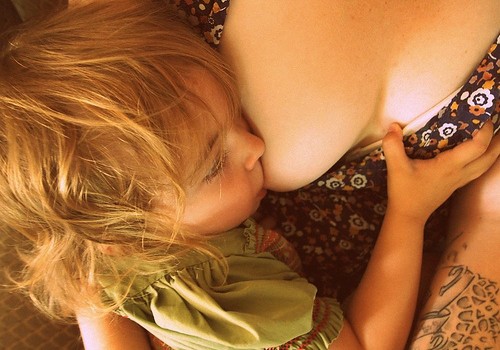
Nutritional facts of breast milk
Often termed as the “perfect food” for a new born baby’s gastrointestinal system, the lactose, proteins and fats present in breast milk can be easily digested by the still developing gut of the baby. The amino acids present in breast milk are in perfect balance for the human baby. Digestion of milk in the baby’s gut is aided by the enzymes, vitamins and minerals present in the breast milk. Breast milk contains a high amount of cholesterol which is important for the growth of the brain. It also forms the building block for the production of hormones, bile and vitamin D. Breast milk contains many antibodies which reduce the incidence of infections in small babies.
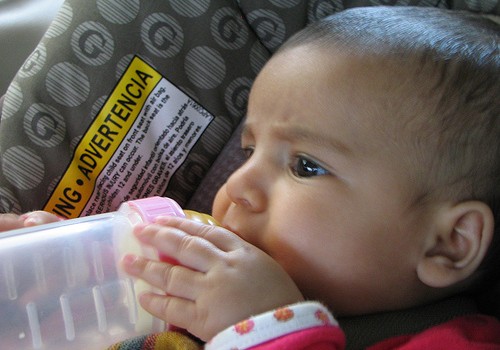
Nutritional facts of formula feed
The commercially produced formula feeds resemble breast milk as closely as possible. They contain almost all the nutritional ingredients present in breast milk. In fact, they are also fortified with certain vitamins and minerals which breast milk does not contain. Breast fed babies have to take additional supplements which formula fed infants do not have to take. It is important to remember that formula feed is manufactured with the help of various sugars, proteins, vitamins and fats mixed according to complex formulas as directed by experts. It is just not possible to get the right combination at home. So, mothers opting to bottle feed their babies should not try to create a formula feed at home and only use the ones commercially available.

Expenses involved in breast feeding
Breast feeding is practically free. At the most, you will have to spend on nursing bras and pads. And if you are a working mother, you may need to buy a breast pump for expressing milk which can be kept and fed to the baby later on. Imagine giving your baby the perfect nutrition without shelling any money! The only thing that you have to take care of is your own diet. You have to eat a nutritious diet in order to express good quality milk. A woman who breast feeds her baby saves a lot compared to a woman who spends money buying formula feed. Moreover, all the antibodies present in breast milk improve the baby’s immunity and help him resist acute and chronic infections. This means, fewer visits to the doctor and less money spent on buying medicines. It also means fewer leaves to be taken from the workplace to look after a sick baby.
- Important notification about information and brand names used in this slideshow!
- Photo courtesy of Mothering Touch by Flickr : www.flickr.com/photos/motheringtouch/5204651801/
- familydoctor.org/familydoctor/en/pregnancy-newborns/caring-for-newborns/breastfeeding-formula/breastfeeding-vs-bottle-feeding-deciding-whats-right-for-you-and-your-baby.html
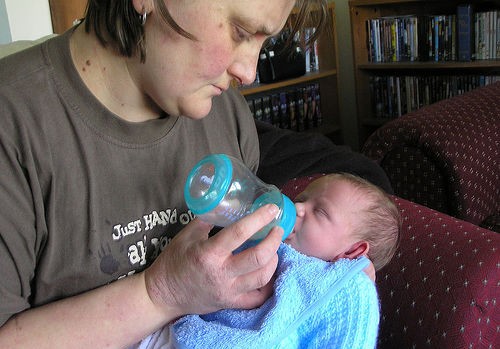
Expenses involved in bottle feeding
If you have decided to bottle feed your baby, be ready to bear some expenses. Formula feed can be costly and you may have to shell out around $2000 for buying formula feed for one year. And this is the cost of the basic formula feeds available in the market. In case your doctor recommends some special type of formula feed for the baby, like soy rich formula or a hypoallergenic formula, the expenditure may be two to three times more. You also have to be very careful about cleaning the bottle properly before and after every feed. Bottle fed babies are low on immunity and can catch infections easily. If the baby falls sick, there are additional medical expenses to be incurred.
- Important notification about information and brand names used in this slideshow!
- Photo courtesy of Tony Malloy by Flickr : www.flickr.com/photos/awmalloy/36964469/
- familydoctor.org/familydoctor/en/pregnancy-newborns/caring-for-newborns/breastfeeding-formula/breastfeeding-vs-bottle-feeding-deciding-whats-right-for-you-and-your-baby.html

Advantages of breast feeding
It is not without reason that breast milk is said to be the ideal food for the baby. It has numerous health benefits, both for the baby and the mother. Some of them are: • Benefits for the baby: 1. Breast milk contains almost all the nutrients needed by the baby. 2. It is easier to digest. 3. It contains many antibodies which can protect the baby against infections. 4. Studies suggest that breast fed babies may have a higher IQ compared to those who are bottle fed. 5. It is not known to cause any allergic reactions in the baby. 6. Helps in securing a better bonding with the mother which makes the baby feel secure. 7. Studies suggest breast fed babies are less likely to be obese. • Benefits for the mother: 1. Uterus shrinks to its original size faster in women who breast feed. 2. Breast feeding helps burn calories faster, so mothers can expect to lose pregnancy fat quicker. 3. It reduces the chances of the mother developing conditions like breast cancer, type 2 diabetes, post-partum depression, osteoporosis and ovarian cancer. 4. No time lost in preparation of formula feed or sterilization of bottles.
- Important notification about information and brand names used in this slideshow!
- Photo courtesy of Mothering Touch by Flickr : www.flickr.com/photos/motheringtouch/5204646039/
- www.medicinenet.com/breastfeeding/article.htm
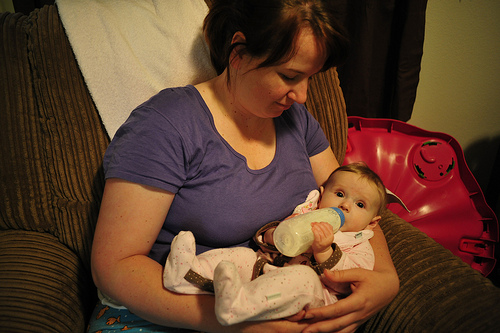
Advantages of bottle feeding
Bottle feeding has its own set of advantages. Some of these include: • Mother can share the responsibility of feeding the baby with other family members. This can give her more time to rest while other family members also get to bond with the baby. • Mothers know exact how much food baby has taken and can derive satisfaction from that. • As formula feed takes a longer time to get digested, baby does not become hungry for a longer time. This gives the mother some time to rest. • Mothers who bottle feed their babies do not have to worry about their own diet. They can eat or drink whatever they feel like without worrying about the impact on the baby. • These mothers can go back to work within a few days of delivery. • Bottle feeding is especially helpful in mothers who are suffering from certain diseases and are on some medications.
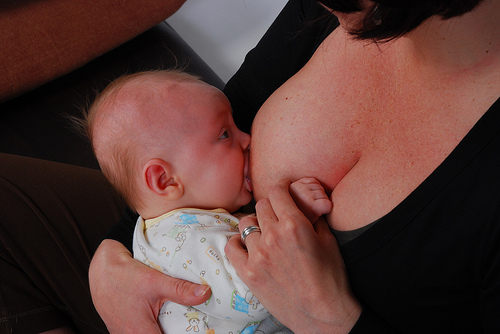
Disadvantages of breast feeding
It is not that breast feeding does not have any disadvantages. Some of them are: • If the baby has a poorly developed suck reflex or if the mother is producing insufficient quantities of milk, chances are that the baby remains hungry. • While the mother is completely involved in feeding the baby, the father and the siblings often get a feeling of being left out. • As breast milk gets digested rapidly, babies become hungry soon. Feeding the baby at short intervals may become stressful for the mother. • If the mother is working, she has to express her milk and store it for the baby before she leaves for work. • Mother has to be very careful about what she eats as many things that she eats get expressed in the breast milk. • She has to think twice before taking any medicine as it may reach the baby via breast milk. • Sometimes, breastfeeding may lead to conditions like sore and cracked nipples which can be very painful.
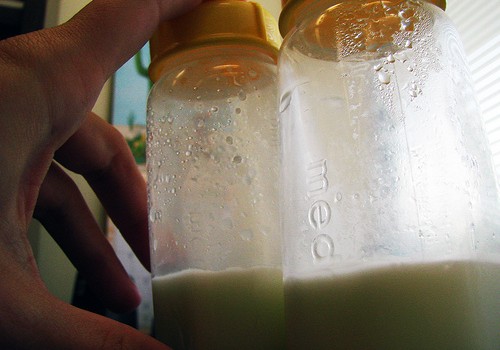
Disadvantages of bottle feeding
There are several disadvantages of bottle feeding. They include: • Formula feeds can be pretty expensive. • Though they resemble breast milk closely as they contain most of the nutrients, yet they do not contain any of the antibodies present in the breast milk. So, the baby does not get any protection against various acute and chronic diseases. Formula fed babies are more likely to get sick. • Formula feeds are not digested easily. So, the baby may suffer from problems like gas and constipation. • Bottles meant to feed the babies have to be sterilized stringently. • Formula feed has to be prepared strictly according to instructions. • Some babies develop an allergy to a specific type of formula feed.

Combining breast feeding and bottle feeding
Although the American Academy of Pediatrics recommends exclusive breast feeding for six months, which may be continued for up to a year or beyond, there are times when it becomes essential to combine breast feeding with bottle feeding. This is especially true in cases where the production of breast milk is inadequate. There may be times when the mother is sick and requires certain medications which may get expressed in breast milk. In such cases also, breast feeding may be temporarily withheld and the baby may be bottle fed. There are times when mother is working and is unable to pump out enough breast milk. She may have to rely on bottle feeding at such times. At times, mothers do not want to get up every few hours during night to feed the baby and therefore, bottle feed the baby at night. As formula feed takes longer to digest, baby gets hungry later compared to when he is breast fed. However, one should always consult a doctor before combining the two modes of feeding. This is because bottle feeding may reduce breast milk production. There are times when baby may find it easier to suck a bottle than at the...
Although the American Academy of Pediatrics recommends exclusive breast feeding for six months, which may be continued for up to a year or beyond, there are times when it becomes essential to combine breast feeding with bottle feeding. This is especially true in cases where the production of breast milk is inadequate. There may be times when the mother is sick and requires certain medications which may get expressed in breast milk. In such cases also, breast feeding may be temporarily withheld and the baby may be bottle fed. There are times when mother is working and is unable to pump out enough breast milk. She may have to rely on bottle feeding at such times. At times, mothers do not want to get up every few hours during night to feed the baby and therefore, bottle feed the baby at night. As formula feed takes longer to digest, baby gets hungry later compared to when he is breast fed. However, one should always consult a doctor before combining the two modes of feeding. This is because bottle feeding may reduce breast milk production. There are times when baby may find it easier to suck a bottle than at the breast and may give up breastfeeding on his own.














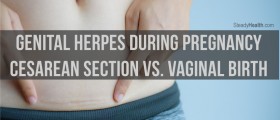






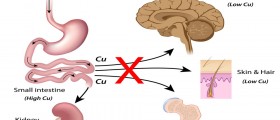
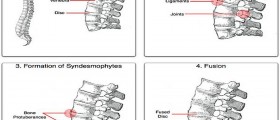



Your thoughts on this
Loading...